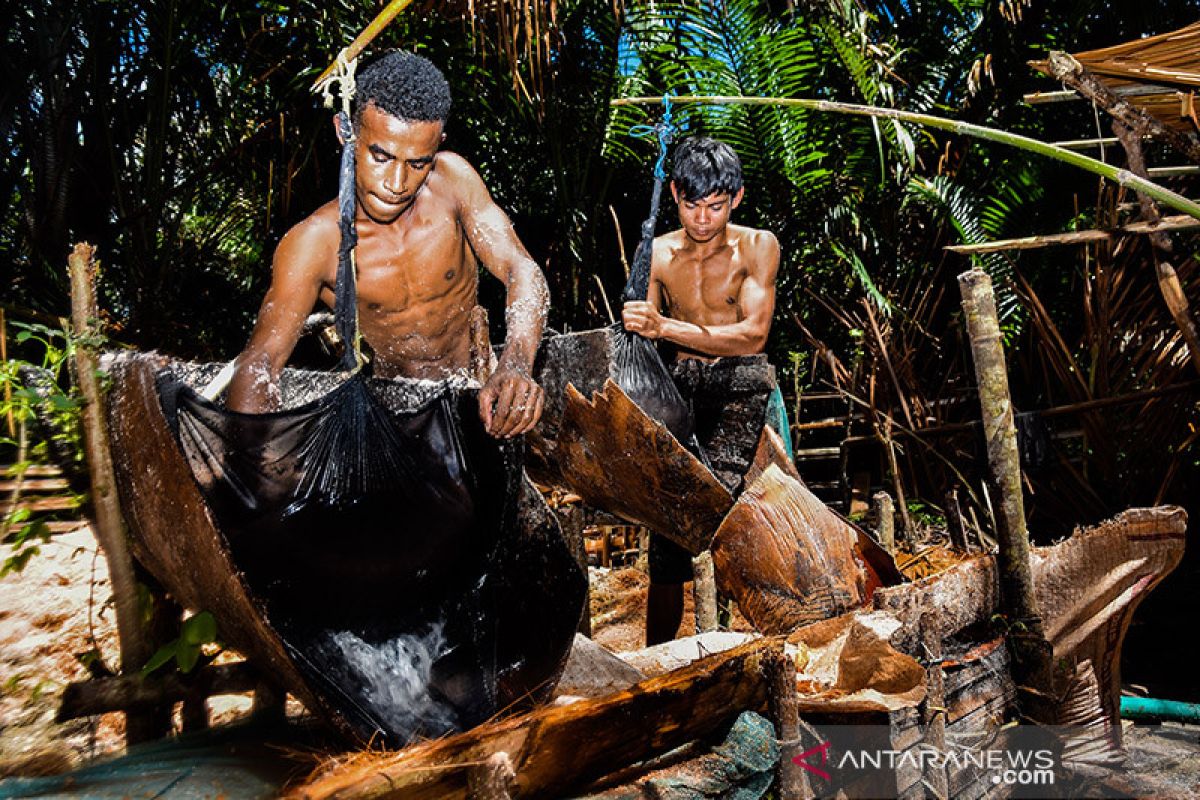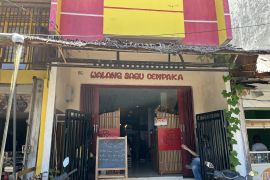Ambon, Maluku (ANTARA) - Residents at the sago plant centre in Tulehu Village, Central Maluku District, Maluku Province, are working relentlessly to continue processing the sago harvest by applying the traditional method.
"Those processing the sago are mostly youth, and the same (traditional) method is still followed and unchanged," Tulehu Village resident Deki, 42, told ANTARA in Ambon, Monday.
Deki explained that four sago plant variants are planted at Tulehu Village's sago plant centre. Traditional methods are followed to process the sago despite the long duration and labour required.
Local sago processor Fadli remarked that the sago processed in Tulehu Village was mostly sent out to fulfil requirements from Ambon, the capital city of the Maluku Province.
Fadli noted that the finished product of sago is termed sago tumang, based on its distinctive bowl-shaped leaf wrapping. Each sago tumang at an assembler is priced at Rp35,000 (around US$2.4). The sago tumang can be processed further into sago flour and papeda, a congee dish served as a traditional staple food made from a mixture of sago and hot water.
"A sago tumang would be priced Rp35,000 at the assembler, and its retail price is double of the assembler's price," Fadli stated.
He also highlighted the differences between the traditional and mechanical methods to process sago being merely the scraper and saw machines that have replaced the old techniques of using large pestles to stamp the bamboo and extracting its sap.
Fadli expounded that sago processing began in the forest, wherein a sago branch would be cut and divided into smaller chunks. The chunks are then drifted afloat to its processing point called Walang Goti, manned by four or five workers.
Fadli stated that once the sago branch chunks arrived in Walang Goti, the workers will first grind the sago into flour before starting the manual sieving process called Sahani. The Sahani process is done by sieving the sago flour on a cloth screen, and the sieved result would be placed on a long mould. The finished product of the process is called sago tumang.
Demand for Tulehu Village's sago has not declined despite the activity restriction (PPKM) enforcement in Maluku Province, Fadli stated.
"(Demand for sago) is not affected by the PPKM. Demand for sago would always be there, as sago is a staple food for most Maluku residents," Fadli pointed out.
Baca juga: Sandiaga: Inovasi, adaptasi, kolaborasi kunci atasi perubahan besar sektor pariwisata
Baca juga: Sandiaga Uno sebut baru 5 persen pelaku pariwisata tervaksinasi, kok bisa?










